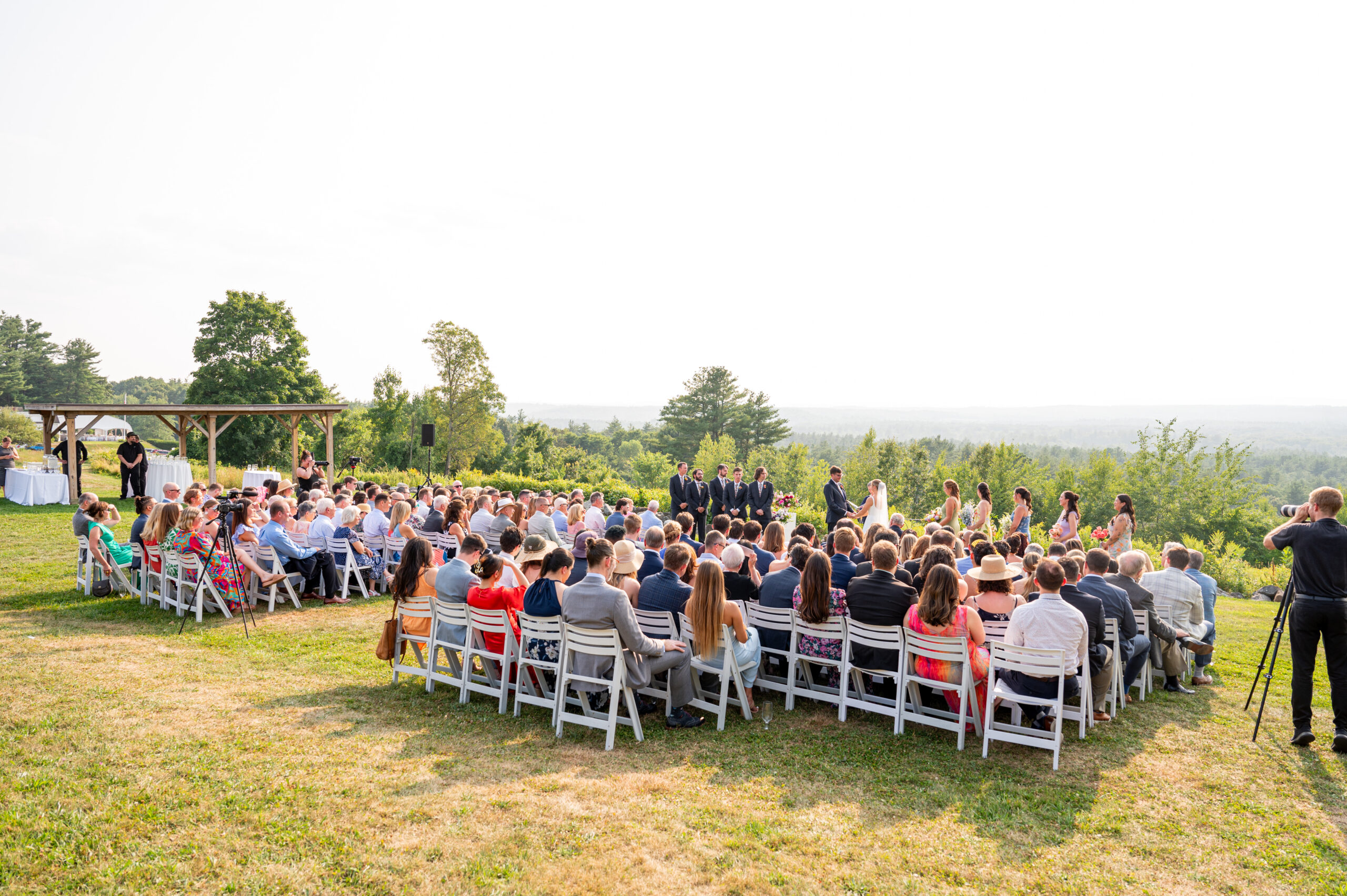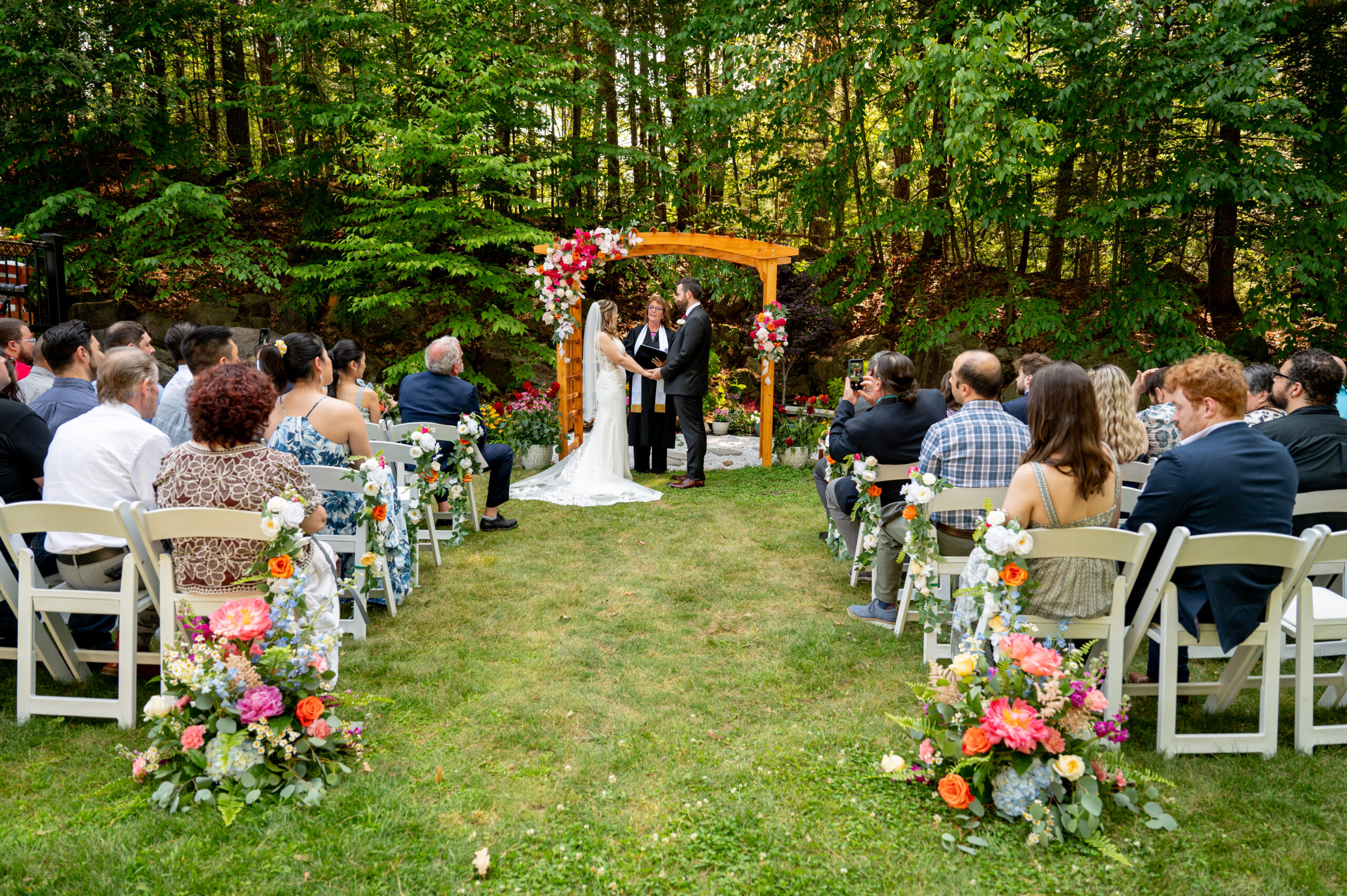September 3, 2025
Why Sun Placement Matters for Your Wedding Ceremony Photos
Best Ceremony Lighting for Photos
When you imagine your wedding ceremony, you’re probably picturing heartfelt vows, happy tears, and that magical walk down the aisle. But one thing couples often overlook—and photographers silently wish they didn’t—is how the sunlight lines up with your ceremony space.
Here’s why it matters (and how to make sure your photos are as dreamy as your love story).
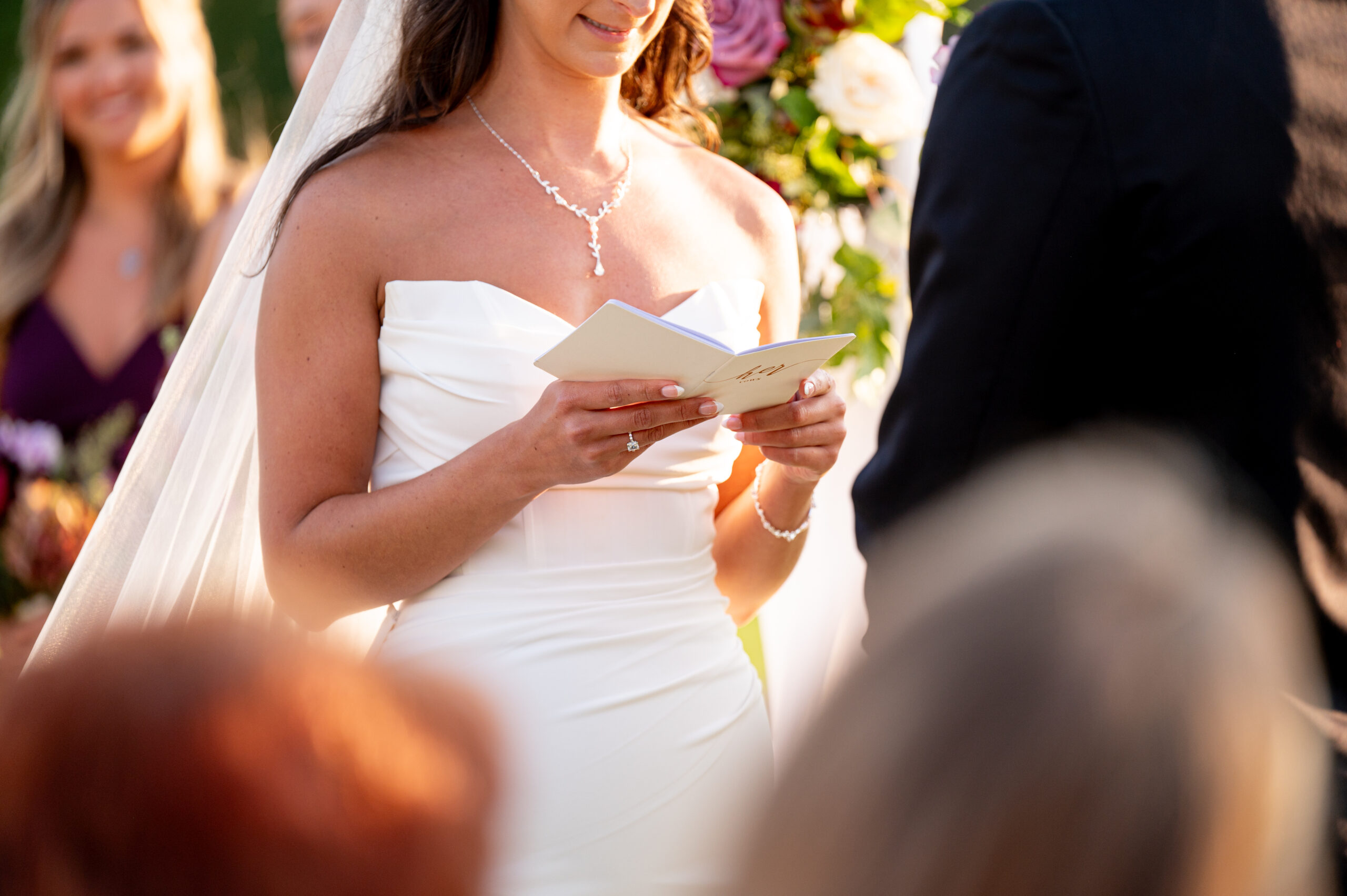
Think About the Angle of the Sun
The direction and angle of the sun can make or break your outdoor ceremony photos—especially on a bright, sunny day.
It might not have a huge impact on an overcast wedding, but the thing is—you never know what your day will look like until it arrives. Just like you’d have a rain plan in place, it’s smart to prepare for a sunny day too!
The ideal setup is to have the sun behind you as you walk down the aisle, or slightly angled to the side behind the altar.
Why? Because if one of you is in full sun and the other is in full shade, your photos will be incredibly tricky to balance. If your photographer exposes for you in the shade, your partner in the sun will be blown out. If they expose for your partner, you could disappear into the shadows. That’s not the dreamy, even lighting you want in your ceremony photos.
Bonus Tip: Ask your venue coordinator or photographer—they’ll often know the best time of day for ceremonies based on the sun’s path. You can also use apps like Sun Seeker to track where the sun will be at any date and time.
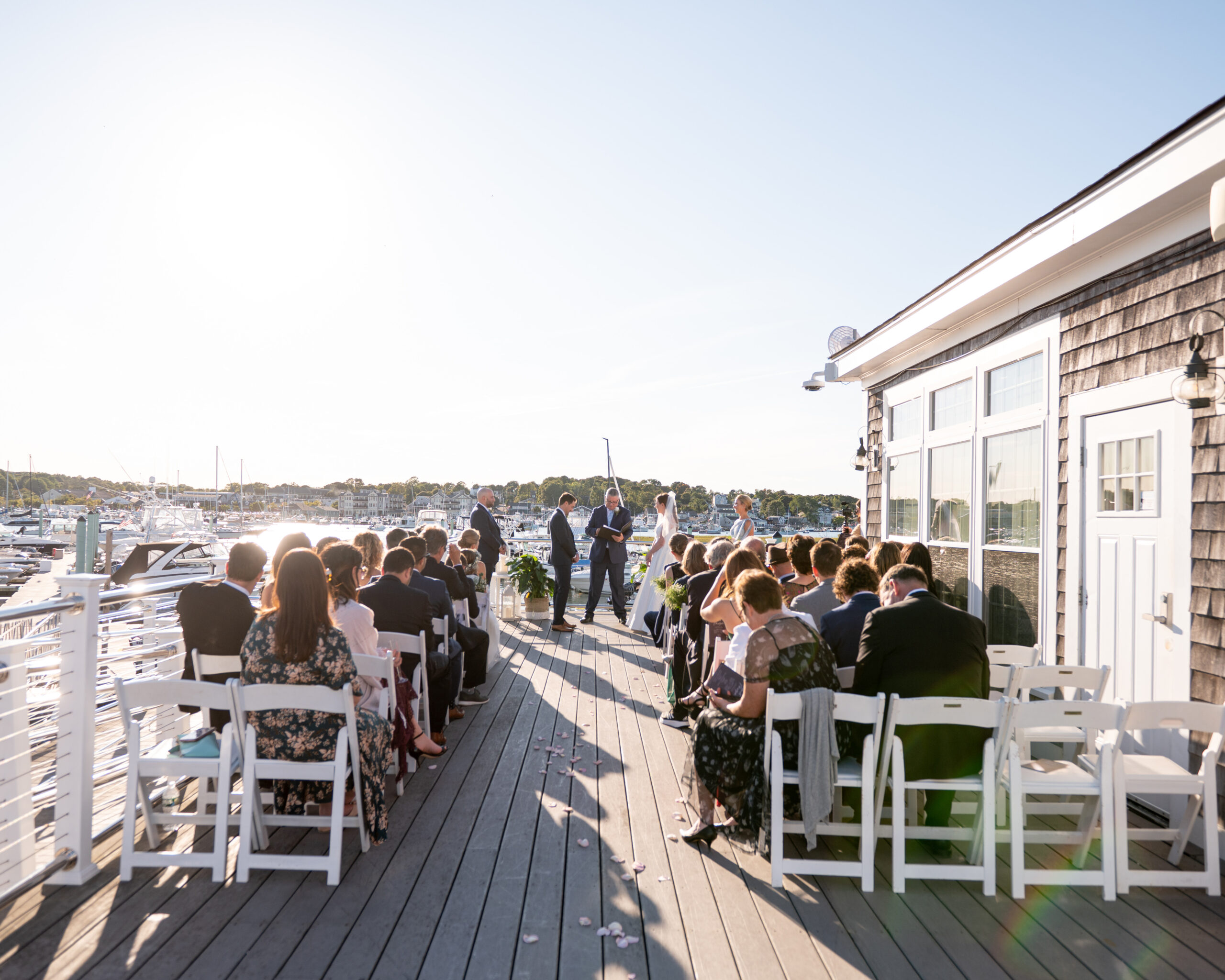
Avoid High Noon if Possible
The harshest time of day for photos is around noon, when the sun is highest in the sky. This leads to:
- Harsh shadows
- Squinting guests
- Raccoon eyes (those deep shadows under brows)
- Washed out backgrounds
If you can, aim for later in the afternoon when the sun starts to soften—or if you’re doing a first look, plan your ceremony around golden hour for the dreamiest glow.
More Things to Consider
Here are a few extra tips photographers always think about—but most couples don’t:
1. Ceremony Direction & Lighting Consistency
Before locking in your altar or arbor location, stand in the exact spot during your ceremony time and see where the sun is during the time of year you’re getting married. The sun’s position changes with the seasons, so what works in June might look totally different in October.
Pay special attention to whether the lighting is even for both of you. Avoid splitting the aisle into sun and shade. When one partner is squinting and the other is glowing in perfect light, the contrast can be hard to fix—even in editing. If you both are in the same lighting, you’re already 100x better off! A small shift in setup can make a huge difference.
2. Consider the Season + Sunset
If you’re having a late fall or winter wedding, the sun sets early! Check local sunset times and make sure there’s enough daylight for portraits after the ceremony (or consider a first look).
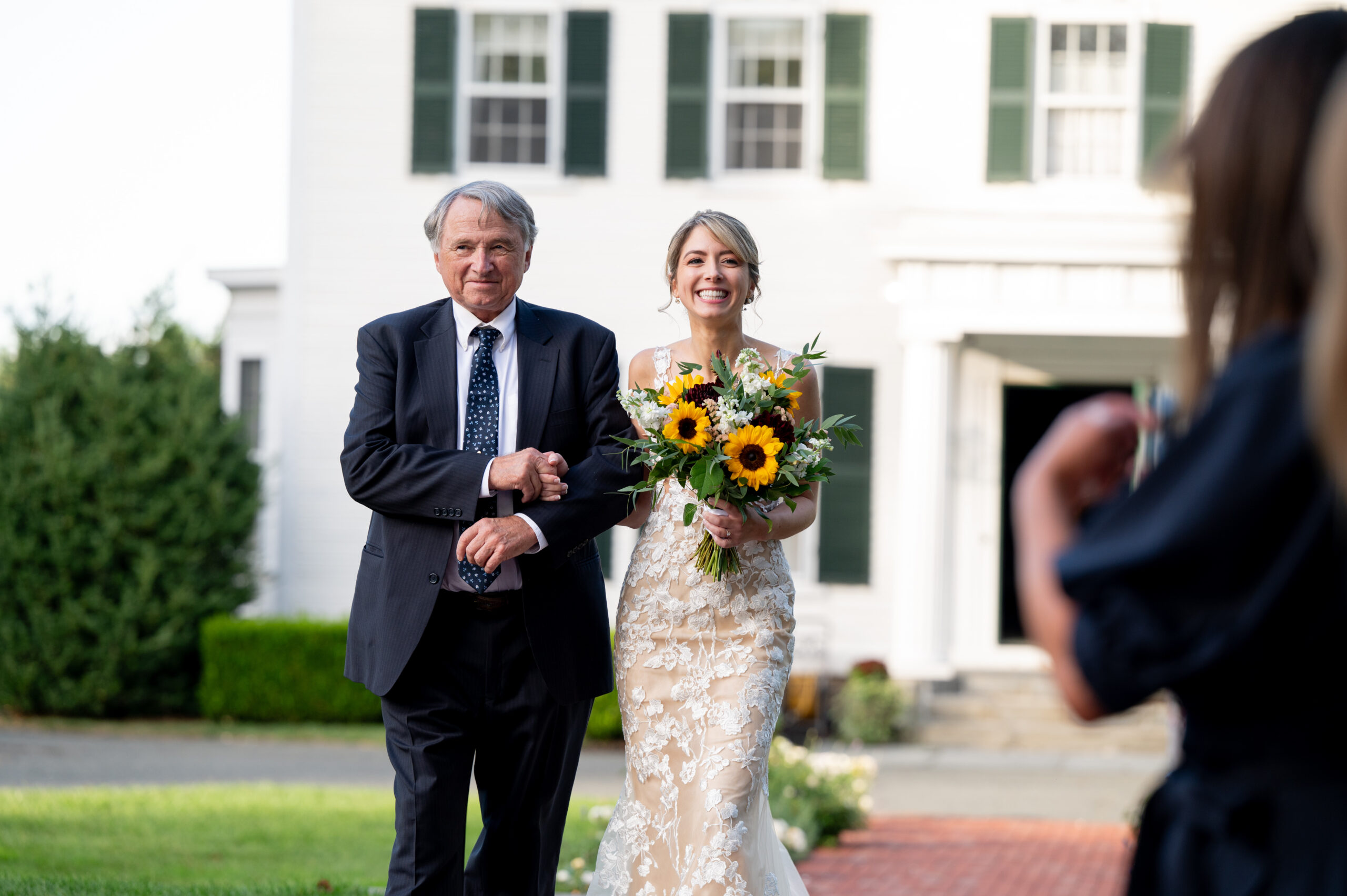
You Deserve Gorgeous Ceremony Photos
This isn’t about stressing over the sun—just being aware of it. When you’re choosing your ceremony location or time, think about the direction of the light and ask your photographer for their thoughts. We’re here to help!
As a wedding photographer who has captured over 400 weddings across New England, I love helping couples plan for the kind of light that flatters, not frustrates. Want help building a timeline that works with the sun, not against it? Reach out here, I would love to chat!
